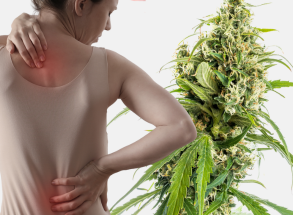Regulatory Compliance
Medicinal cannabis in the Netherlands
The cannabis programme in the Netherlands is fully controlled by the Office of Medicinal Cannabis (OMC). The OMC has tendered out different parts of the supply chain, which include cultivation, testing, and packaging and distribution, to different companies. Bedrocan has been contracted for cultivation.
The programme is structured in a way that OMC is contracting companies via tender to perform a single role in the supply chain.
A little bit of history
The Single convention of 1961 implemented a strict control system on activities related to medicinal cannabis, including the requirement of supervision by a government agency. In 2001, the OMC was created within the Dutch Ministry of Health with the purpose of implementing the Single Convention on Narcotic Drugs and overseeing the production of cannabis for medicinal and scientific purposes. In 2003, the OMC started the medicinal cannabis program, which allowed access to cannabis for patients, who had a prescription, through pharmacies, and for research and product development.
The United Nations conventions
Cannabis is included in the United Nations global drug control regime, based on the following treaties: the 1961 Single Convention on Narcotic Drugs (as amended by the 1972 Protocol), the 1971 Convention on Psychotropic Substances and the 1988 Convention Against Illicit Traffic in Narcotic Drugs and Psychotropic Substances.
These three treaties determine international control measures to ensure that controlled substances, included in schedules according to their therapeutic values and potential abuse, are available for medical and scientific purposes.
Cannabis scheduling
In December 2020, the United Nations Commission on Narcotic Drugs (CND) adopted recommendations from the World Health Organization (WHO) regarding the reclassification of cannabis in The Single Convention. One of the recommendations was the removal of cannabis from Schedule IV, intended for dangerous drugs without relevant medicinal usages.
Cannabis is now listed in Schedule 1, which means it has still a ´prohibited´ status, but is recognised as having medicinal value. Research and product development is therefore allowed if a country so wishes.
Medicinal cannabis and regulatory compliance, globally
The International Narcotics Control Board (INCB) oversees the activities of such agencies on the international level and receives yearly estimates of medicinal cannabis requirements in each participating country. Additionally, each country has its own Opium Act on the national level. According to the Dutch Opium Act, growing medicinal cannabis is forbidden unless an opium exemption has been granted.
Medicinal cannabis and regulatory compliance, quality
In order to assure the quality of the supplied medicinal cannabis, the contracted certified laboratory checks each batch of medicinal cannabis for levels of cannabinoids, moisture and contamination (heavy metals, pesticide, mould and microbes), following the European Pharmacopoeia and Dutch monograph.







